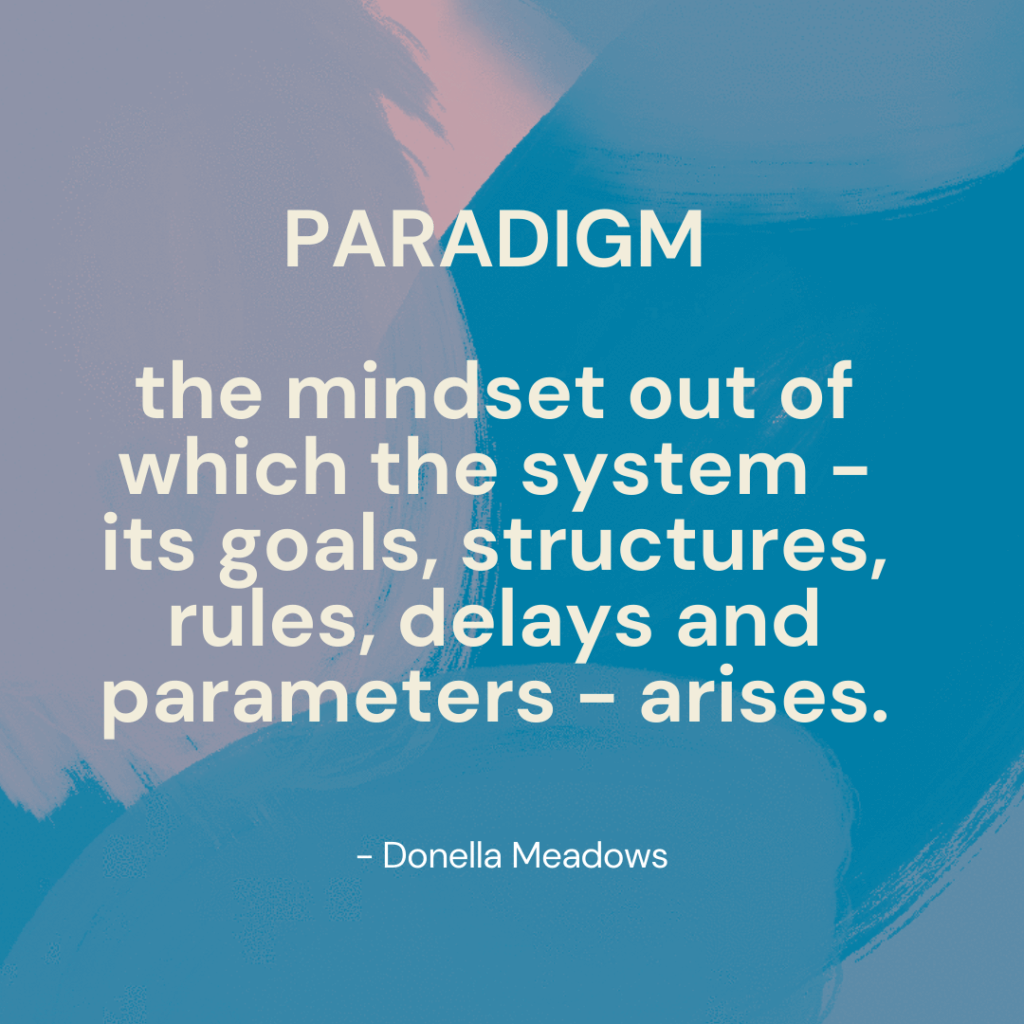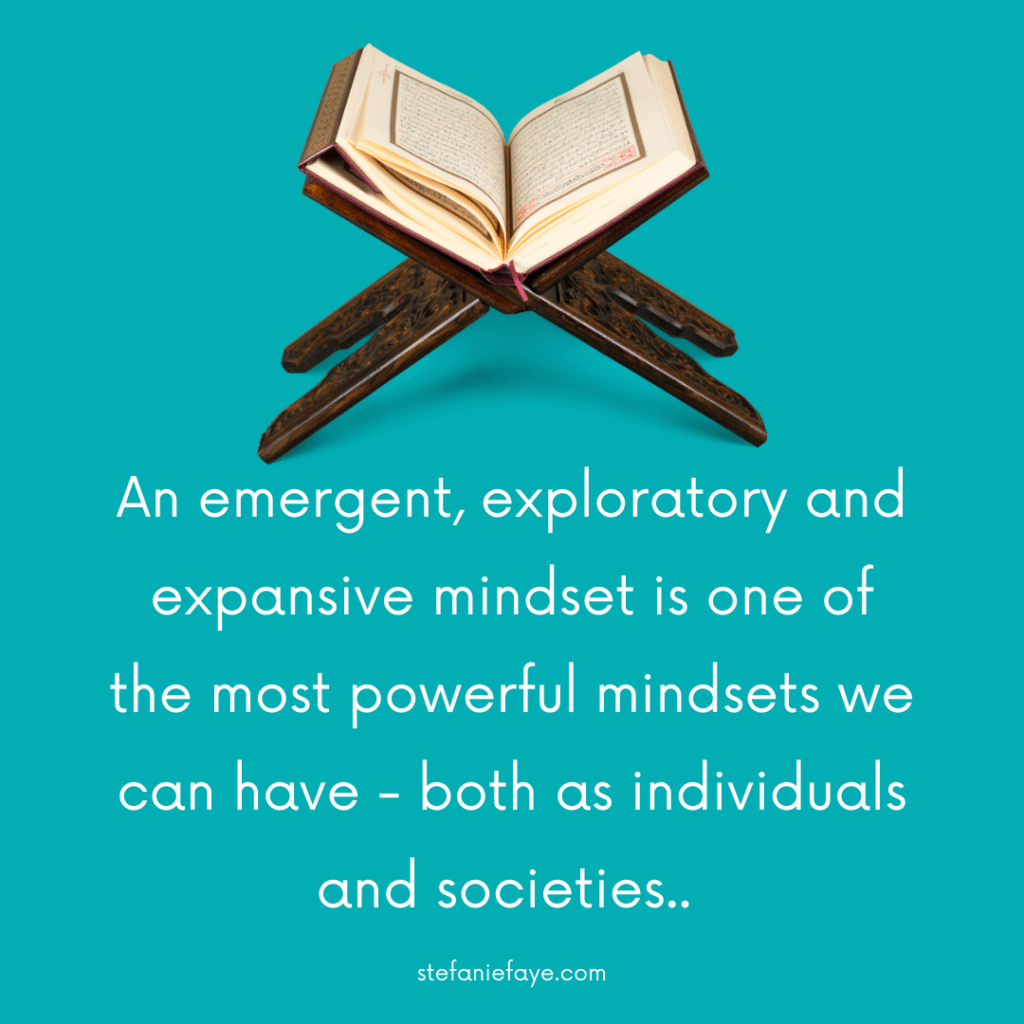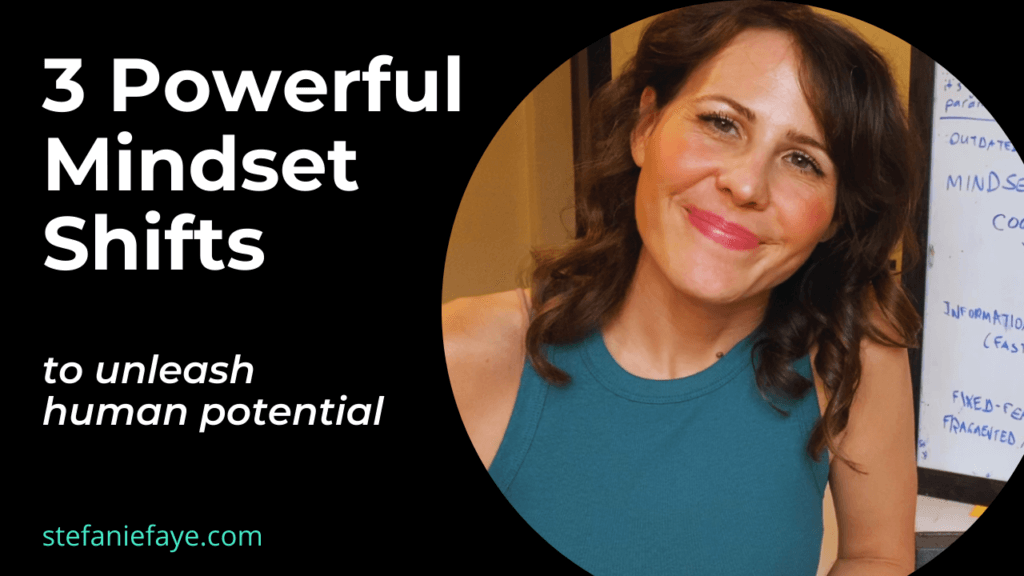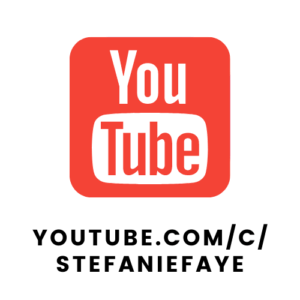"Paradigm: the mindset out of which the system - its goals, structures, rules, delays and parameters - arises."
-Donella Meadows, Thinking in Systems
The idea of presenting one thing next to another in order to see both more clearly is the concept of a paradigm.
In her systems thinking theory, Donella Meadows lists Paradigm as the second most Powerful Leverage Point to Change (transcending paradigms is the most powerful.. I’ll get to that one again in a future post).
It’s really important for us to know that we are operating within certain mindsets or paradigms. They influence the parameters and logic models our mind-brain-body uses to create algorithms, predictions and behaviors.
And identifying the incompleteness and imperfect information about the paradigm or mindset that is influencing our behavior is the key to change. We need to, as Thomas Kuhn proposed, highlight and talk about the anomalies and failures of the old paradigm.
So one way i’d like to share some of the dominant mindsets we are currently influenced by is to ‘lay them side-by-side’ with alternatives. These alternatives are ones I see in the most effective and cutting edge realms of mental health, education, wellness and interpersonal neurobiology.

Three mindset shifts to transform human potential - including our societies, systems and behaviors:
Old paradigm #1: Mindset - as a verbal and cognitive construct.
Many people who want to help others shift into a new mindset (or do this for themselves) are focusing almost exclusively on thought alone, and going into the mind. This is not enough.
Alternative paradigm: Mind-Body-Set that includes an awareness of our body
We use the body’s movements, inner workings, sensations and heart rhythms as gateways to understanding our mental and emotional state. It is the transduction of electrochemical, nonphysical energy into mechanical, observable movement. It’s about looking at thought turning to action and looking at how our movements and their related frequencies tell us about our thoughts.
Old paradigm #2: Information scarcity.
We increase our speed of accumulating as many data points as possible to attempt to understand and predict. (high speed flitting about attention from one thing to the next)
Alternative paradigm: Information abundance.
Slowing down and increasing present moment extraction of the massive amounts of data contained in each micro-moment, micro-signal.
Old paradigm #3: Fixed-fearful-fragmented.
Considering it ‘normal’ to think our understanding is the only correct one and is infallible. This often happens in parallel with fragmenting our understanding by only venturing into the knowledge territories we already believe and are familiar with. This contains a fear of being wrong and doing what we can to defend our opinions rather than open up to the idea that we may have imperfect information.
Alternative paradigm: emergent, exploratory, expansive.
These are the natural features of complex adaptive systems.

An emergent, exploratory and expansive mindset is one of the most powerful mindsets we can have - both as individuals and societies.
What drives this mindset is the belief that evolution and growth are possible. Not perfection, and not being at the pinnacle already.. but the belief that we can go from having undesirable, even unhealthy results.. to slowly and incrementally, with struggle and effort, grow and adapt and evolve.
The original wording Carol Dweck used in her research that she later named growth mindset was incremental. When we notice incremental change, that tiny glimmer of progress does one simple but powerful task: it creates an exception to the logic model that 'we can’t change'.
and once that weak link in the chain of a logic model is there, we can no longer hold it as an absolute truth. It doesn't mean it's smooth sailing once we have that realization. It's the first step of a long journey of more challenge, efforts, struggle, failure and discomfort.
That may sound exhausting, but when we are able to see that although we dislike where we might be, or feel unskilled, hopeless or like a failure in one or more areas of our life, if we can see the smallest moments of improvement, we have done the powerful work of breaking apart a mindset or belief. And we've moved from mind to movement. Thought to action.
That ability to break apart the logic of a paradigm and to display its weaknesses is a skill that can serve us from that point on as we challenge ourselves to become learners and therefore mistake-makers.
Think about an area where you feel stuck, frustrated, hindered in some way (we all have at least one!) ...
Do you believe growth and evolution are possible for you specifically in that area? If you have doubts, where do they come from? Do you have models of people who went from being stuck to pushing through to a new level in that area?
What sources can you turn to that could provide you with a side-by-side comparison of another paradigm or possibility?
Find out more about these 3 outdated mindsets in today's video





